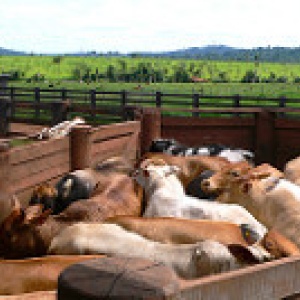
This letter in Global Change Biology responds to a paper published earlier in the year in Nature Climate Change by de Silva et al (summarised by the FCRN here) which concludes that a combination of strict land controls and an increase in beef production in the Amazon could lead to greater emissions reduction than a scenario of land control and no beef production increases.
The assumption made in that paper was that better beef management can increase beef output while also stimulating soil carbon sequestration.
This letter by Phalan et al, written in response, challenges these conclusions on the following grounds:
- It questions whether land controls in the Brazilian Cerrado have been or in future will be sufficiently effective to ensure no further deforestation or natural vegetation clearance
- It disputes (on a number of grounds) the assumption of a positive relationship between higher livestock intensity and greater soil carbon sequestration that is so central to the model in the de Silva paper
- The paper fails to consider a scenario where the overall land area devoted to livestock production is reduced, intensity of livestock production is increased on that land and then the ‘spared’ land is used for ecological restoration
- It fails to consider other approaches to restoring land in the Cerrado, approaches which evidence shows have proved to be effective.
Citation
Phalan B, Ripple W J and Smith P (2016). Increasing beef production won’t reduce emissions, Global Change Biology, doi: 10.1111/gcb.13436
The paper can be accessed (paywall) here.
A response to this letter of challenge has also been published by the authors of the original paper. In it, they provide counters to each of the points made by Phalan et al and conclude by saying: “the increasing rhetoric on reduced consumption should be supported by further systematic modeling evidence and that the type of anomaly we observe warrants international attention.”
The citation for this response is as follows:
Barioni LG, de Oliveira Silva R, Moran D (2016). Reducing beef consumption might not reduce emissions:response to Phalan et al. (2016), Global Change Biology doi:10.1111/gcb.13458
It can be accessed here (paywall).
Note that the FCRN has summarised two papers by da Silva et al on this topic and they can be found here and here. Several of the authors both of the original paper and of the response letter are FCRN members.
You can read more in the Research Library categories on Land, Meat, eggs and alternatives as well as the keyword categories beef, carbon sinks and sequestration, livestock systems, sustainable intensification.







Post a new comment »